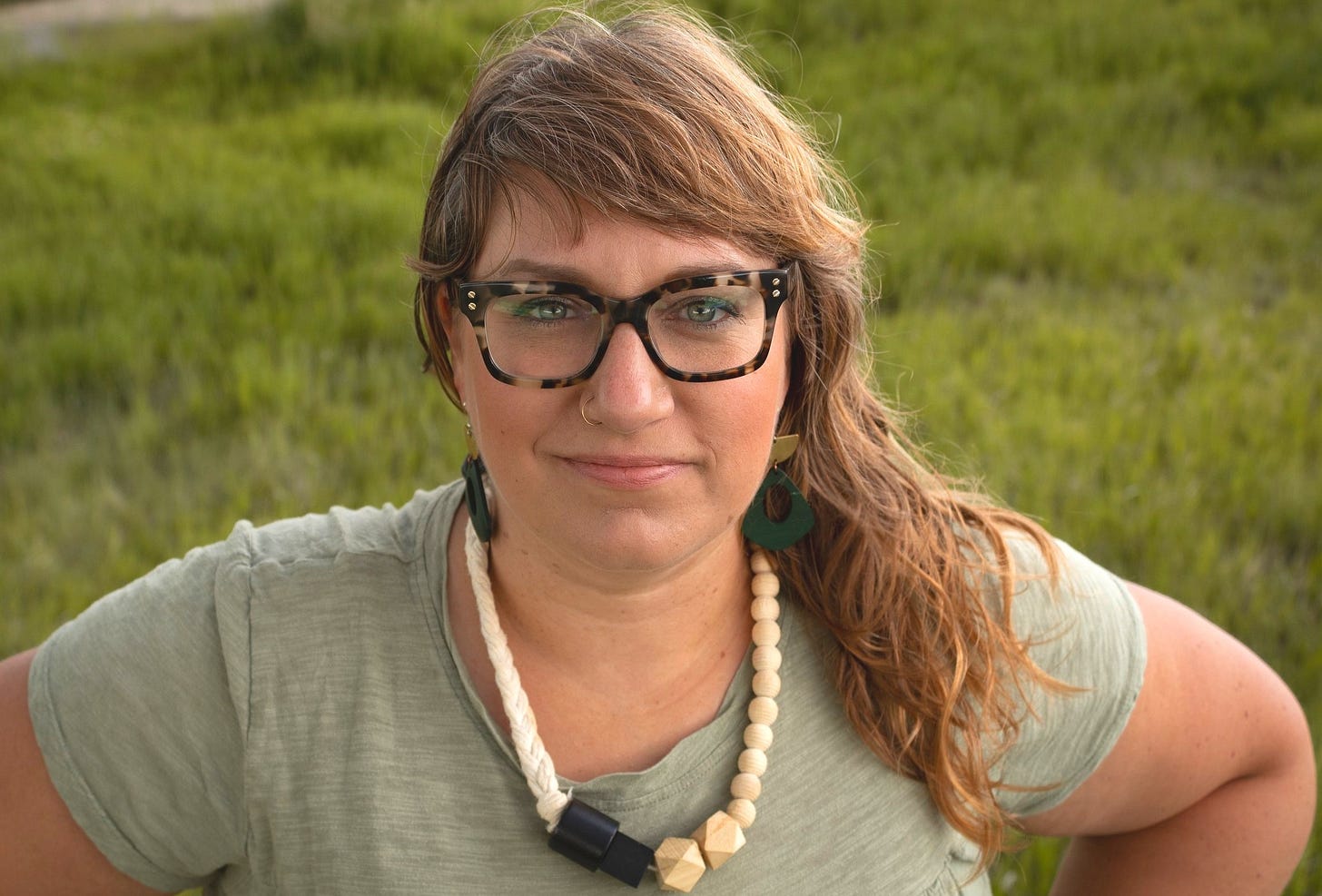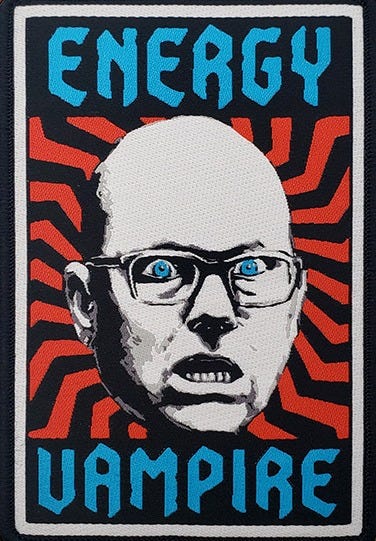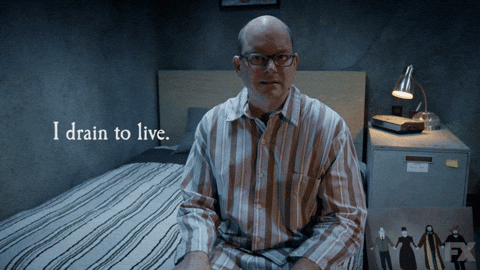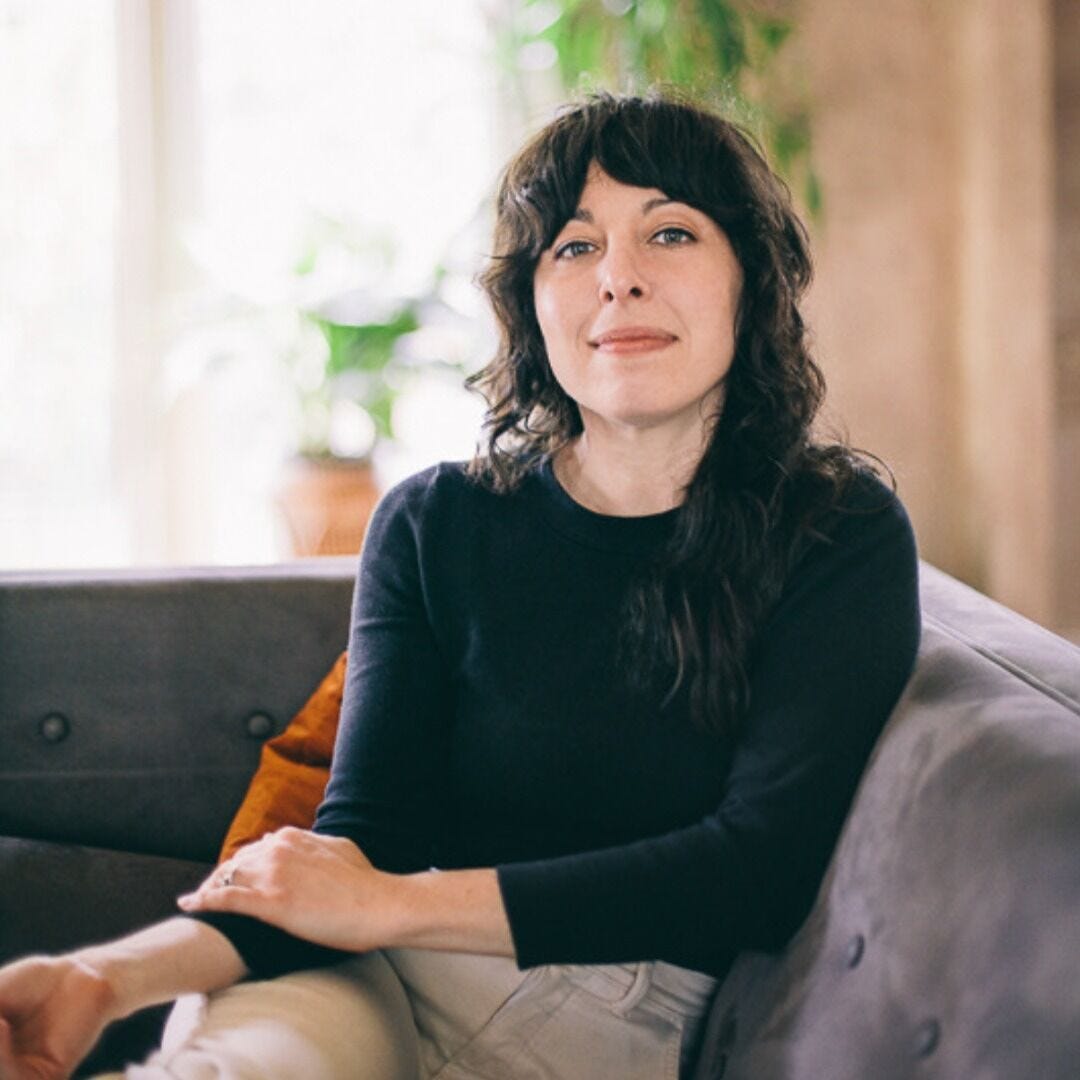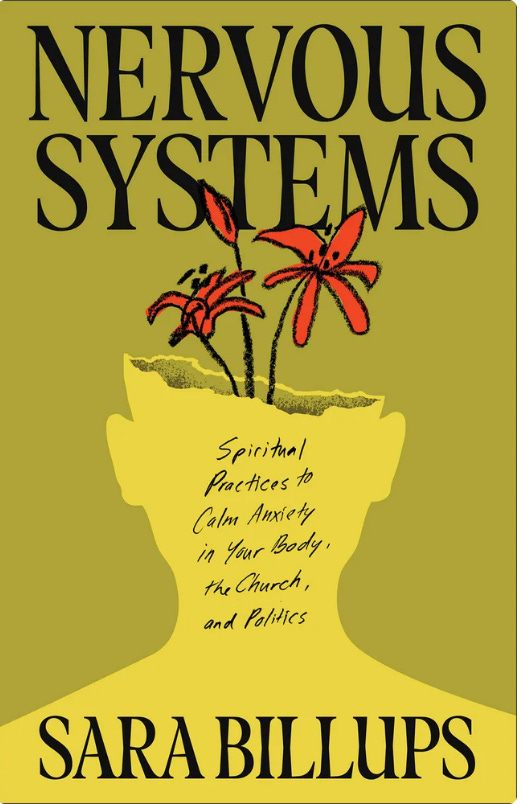the Empathy List #159: On Energy Vampires and the Gift of a Diverse Community
Sara Billups' weighs in on what it takes to build real community (hint: it will cost you more than energy).
Hi friends, Liz here.
I’m anxious right now. I feel anxious watching so many of the good systems1 established by progressive policy in the U.S. face down a wrecking ball by the name of Donald Trump. But more than that, I feel deep grief for those most directly affected—like those held within Broadview Detention Center and the protestors who stand outside, facing down lines of Illinois State Police in riot gear with their cans of tear gas.
In that way, I have felt relief receiving the prescient words of my friend Sara Billups in this moment. She’s been on her own long journey with anxiety as a woman within the American church, a writer in the world of publishing not made for mid-listers like us (I’ll explain this sometime), and a white woman progressive in a world of misogynistic, racist politicians.
I need Sara Billups’ wisdom, and I bet you do, too.
Today, I’m sharing an excerpt from her book that just released LAST TUESDAY called Nervous Systems: Spiritual Practices to Calm Anxiety in Your Body, the Church, and Politics—which is a book exactly for THIS moment in history that seeks to meet those of us who are anxious for real, scary reasons with an embodied hope offered by ancient contemplative practices. More importantly (to me), Sara’s a good writer and she tells stories in this book alongside its more practical elements.
And she tells the truth. There is no total cure for anxiety. (Don’t believe the man behind the curtain at the Department of Health!!!!). Yet as Sara writes it in her introduction, “Jesus said, ‘Do not worry,’ and I believe he meant it. To say it plainly: My anxiety did not dissipate.” The contemplative practices she has enacted in her daily life have not “fixed” her anxiety, bringing her to anxiety inbox zero. “Instead,” Sara writes, “God met me repeatedly in its very presence.”
Isn’t that what we need more? More than inhabiting a place of total peace, we need the presence of God as we wrestle with anxiety. We need God more than we need peace. At least I do. And Sara models a way for us to seek God even when we feel afraid.
We all need a lesson in letting love, not fear, lead us.
…plus this excerpt talks about energy vampires, which makes me think of the best energy vamp of all time, Colin Robinson. You’re welcome. ;-)
Enjoy!
Warmly, Liz Charlotte Grant
On Energy Vampires & the Gift of Diverse Community
by Sara Billups
The New York Times ran a 6-Day Energy Challenge in January of 2024. Daily themes were on topics like how to eat better and gain more focus. Day four stuck out to me: Identify your “energy vampires” and “chaotic friends.”
The article invites readers to conduct a “friendship audit” and lists questions to consider to determine if a person in your life is an energy vampire:
Who, if anyone, do you consistently put off seeing or dread responding to?
Who often makes you feel so irritated, keyed up, or fatigued that you have to recover after seeing them?
Who makes you regularly zone out during conversations because they aren’t involving you?
Oprah was interviewed for the article and said, “You are with the wrong friend ‘if you are around anybody that makes you feel less than 100 percent yourself, if you’re around anybody that makes you feel like you can’t shine or say whatever you want to say.’ ”
I’m certain I’ve been an “energy vampire” to friends in different times, and I can think of a few people in my life who would fit the bill of those three questions—friends who feed my anxiety. But I winced when I read this article. The message underneath a vampire friend audit is clear: We can dictate who is in our lives based on how they make us feel; we need to be close to people who can do something for us. I wasn’t comfortable with that.
Don’t get me wrong: No one should be forced to stay in a relationship or a church that is abusive or remain in any setting where harm is done. But consumerism is dripping all over the notion of the friendship audit. I can freshen up friends like a wardrobe. The same thinking can apply to a church that isn’t perfect—which is every church.
I thought about the article for several days and reread it a few times. I wondered if my frequent emotional hangovers were a sign of some internal draining, a drawing out of my personal stores of energy.
Psychiatrist Judith Orloff explains that emotional hangovers are “ ‘energetic residue’ left over from an interaction with an ‘energy vampire,’ or someone who, intentionally or not, saps your mental and emotional energy.”
Ha, I thought. Sure, other people can deplete us. But what do you do when you suck the life out of yourself?
What do you do when you are, in fact, your own energy vampire?
I began the Ignatian Exercises in 2023 around the same time I was thinking about energy vampires. I had some personal work to do in understanding how we can be our own worst enemy. Part of the nine month retreat (for me, an hour in the morning before work) involves asking God to surface our authentic and false selves so that we can begin to differentiate our appetites from God’s desire for our lives. The authentic self is rooted in God’s love. The parts of us driven by love reveal our true identity. I have mine and you have yours.
Thomas Merton wrote in New Seeds of Contemplation, “My false and private self is the one who wants to exist outside the reach of God’s will and God’s love.”
My “false self” surfaced quickly over the first weeks of the retreat, featuring emotional heavy hitters such as loneliness and ego. My authentic self surfaced in gentler ways, including an inclination toward faithfulness.
Loneliness diminishes when we’re committed to a group of people. Unfortunately, the ego can be poked and feelings hurt. When we pursue a part of our authentic self, which in my case involves a bent toward fidelity, that desire is usually tested. Church is a petri dish.
I want to be in a community with people I can learn from even if we don’t have the same taste or a lot in common. I want to grow to love people who are not like me, those younger and older than me with different stories and experiences. I believe that’s what a healthy church community looks like. That’s how empathy grows. But first and always, new and uncomfortable interpersonal situations pop up; there are constant invitations to choose kindness, patience, and self-control.
And that’s a good thing.
About Sara Billups
Sara Billups is a Seattle-based writer and cultural commentator whose work has appeared in the New York Times, Christianity Today, Aspen Ideas, and others. Sara writes Bitter Scroll, a monthly Substack letter and co-hosts the podcast That’s the Spirit. She earned a Doctor of Ministry in the Sacred Art of Writing at the Peterson Center for the Christian Imagination at Western Theological Seminary. Her first book was Orphaned Believers, and her second, Nervous Systems, just released LAST TUESDAY!
This is an excerpt from Sara Billups’ new book, Nervous Systems: Spiritual Practices to Calm Anxiety in Your Body, the Church, and Politics, published by Baker Books, a division of Baker Publishing Group, copyright November 4, 2025. Used by permission.
Not all governmental systems are good, but SNAP and Medicaid and asylum for seekers ARE good. And those have been systematically undermined by this current administration. (sob)



